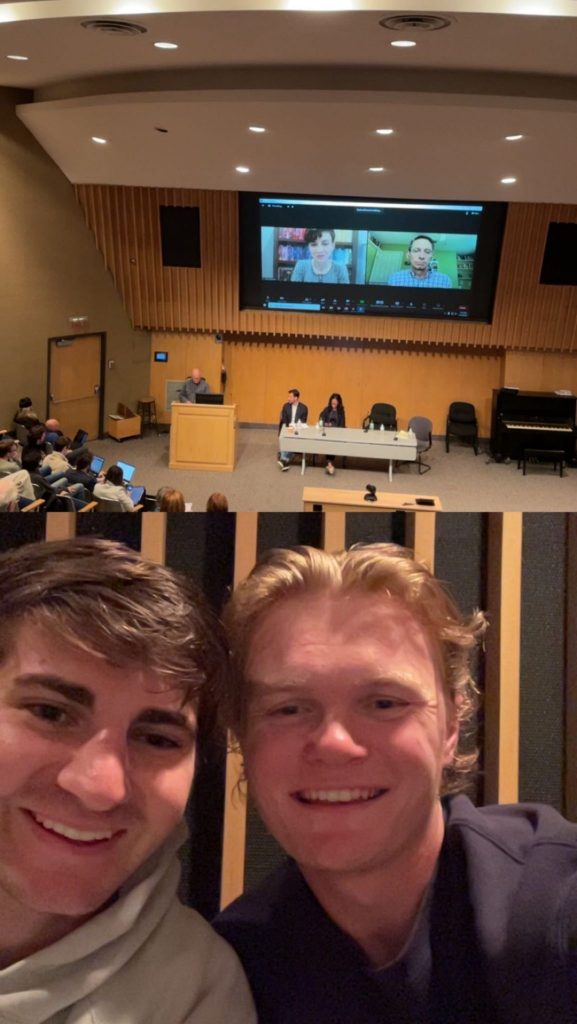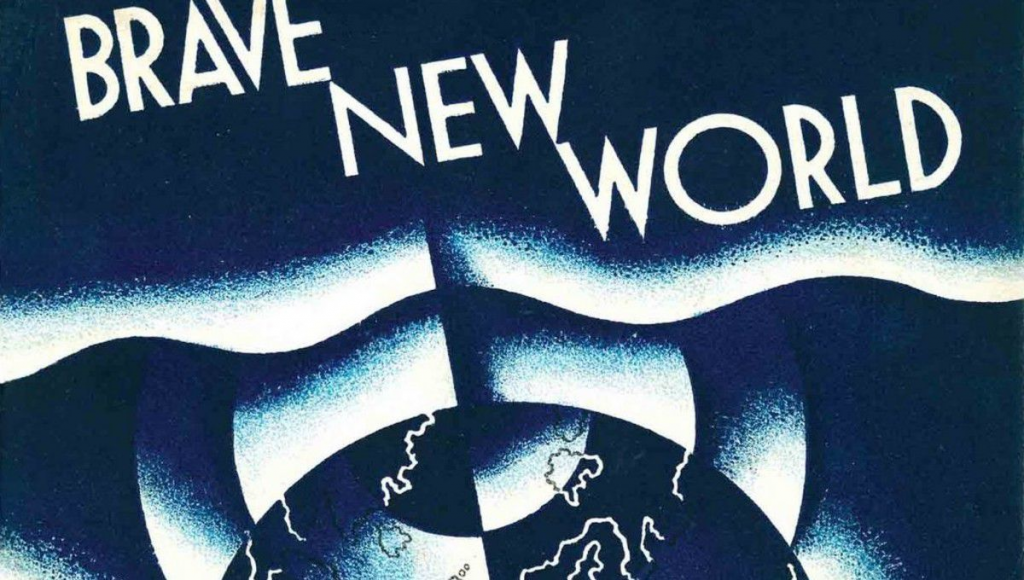
Week 13: Extra Credit



The use of deceit as a technique of control is addressed in both Aldous Huxley’s Brave New World and Aleksandr Solzhenitsyn’s The Gulag Archipelago. One is taught, in Chapters 11-18 of Brave New World, how the usage of Soma, a medication that promotes euphoria, is used to persuade the residents of the world state into accepting their predefined roles in society. Similarly, in Chapter 3 of The Gulag Archipelago, Solzhenitsyn outlines totalitarianism’s use of the “permanent lie” to control citizens’ ideas and behaviors. While the control techniques differ, both texts discuss the perils of permitting people in authority to alter the facts for their ends.
The use of Soma is depicted in Brave New World as a technique of sustaining the world’s stability. Citizens are conditioned to accept their predefined social positions from birth, and any deviation from this training results in punishment or ostracism. Soma is used to calming those who might otherwise dispute their assigned positions or the state’s authority. “It’s one of the conditions of perfect health,” says the character Mustapha Mond. That’s why we made such a big deal about it” (Huxley, loc. 1966). By linking Soma usage with health, the state creates an environment in which any questioning of its use is viewed as an outlier. Similarly, Solzhenitsyn discusses the deployment of a “permanent lie” to keep control over citizens. The concept of a “permanent lie” refers to the belief that the state can change the facts to serve its objectives, even if it contradicts objective reality. Solzhenitsyn writes that the “permanent lie” “surrounds us with a dense and high-powered fog” (Solzhenitsyn, p. 40). Citizens find it difficult to determine the truth and hold those in authority accountable for their actions as a result of the fog.
While the control techniques differ, both works highlight the risk of permitting people in authority to alter the truth. The usage of Soma in Brave New World lets the state keep control over its inhabitants by fostering a culture in which questioning authority is viewed as a sign of disease. Similarly, the deployment of the “permanent lie” in The Gulag Archipelago creates a culture in which citizens are unable to recognize the truth and consequently unable to hold those in authority accountable. The proliferation of disinformation and the weakening of trust in traditional sources of information demonstrates the perils of the “permanent lie” today. The emergence of biased news sources has made it difficult for citizens to distinguish objective facts, and the proliferation of social media has made it simpler than ever for those in power to influence the truth. The risk of this manipulation is that it permits those in authority to avoid accountability while maintaining influence over the people.
Summing up, both Brave New World and The Gulag Archipelago show the consequences of allowing people in power to alter reality. The usage of Soma in Brave New World creates a culture in which challenging authority is considered a sign of illness, whereas the “permanent lie” in The Gulag Archipelago develops a civilization in which citizens are unable to detect the truth. The proliferation of disinformation and the weakening of trust in traditional sources of information demonstrates the perils of the “permanent lie” today. Citizens must be vigilant and hold people in authority accountable for their actions to ensure that the truth is not distorted for their benefit.

The scene in “Brave New World” in which the Director gives a tour to a group of students from the Hatchery and Conditioning Centre is one passage that can be analyzed using Solzhenitsyn’s ideas. The Director demonstrates the conditioning process that babies go through before becoming members of the World State. Electric shocks and sirens condition the babies to fear books and nature and prefer consumer goods and promiscuity, “We also predestine and condition. We decant our babies
as socialized human beings, as Alphas or Epsilons, as future sewage workers or future …” (Huxley 13). This passage can be analyzed using Solzhenitsyn’s concept of “survival at any cost.” Survival in the World State is a psychological necessity rather than a physical one. Citizens of the World State have been taught that their happiness and well-being depend on their ability to consume and conform. Individuals are taught to prioritize pleasure and consumption in order to avoid feelings of loneliness and dissatisfaction during the conditioning process. For example, Lenina is the prime citizen of the World State: enjoys her work as a hatchery worker, but also enjoys spending her free time engaging in recreational activities, such as playing Electromagnetic golf and engaging in casual sex with multiple partners.
Solzhenitsyn also discusses the central ethic of modern totalitarianism, “only the material result counts.” The World State’s obsession with consumer goods and superficial markers of success exemplifies this idea. Books and nature are conditioned to be feared by babies as unnecessary distractions from pursuing pleasure and consumption. The Director proudly displays the conditioning process as proof of the World State’s ability to produce obedient and productive citizens who will contribute to the economy and consume goods and services.
Solzhenitsyn’s ideas can thus be used to analyze the conditioning process in “Brave New World.” Babies are socialized to value consumption and conformity over individuality and free will. They are taught to fear books and nature as threats to the World State’s stability and efficiency. Conditioning can be viewed as a form of psychological survival in which individuals are taught to prioritize pleasure and consumption in order to avoid feelings of loneliness and dissatisfaction. Solzhenitsyn’s ideas help to contextualize the conditioning process in “Brave New World,” revealing how modern totalitarian societies prioritize material gain and survival over human dignity and individuality. A conditioning process is a tool used by the World State to create obedient and productive citizens who will contribute to the economy and consume goods and services at the expense of their own personal freedom and autonomy.

Greetings, fellow Generation Z’ers!
You have more access to information than any other generation because you were born into the digital age. Information is easily accessible at our fingertips because of technological breakthroughs like the internet, social media, and others. To make sure that the information we receive is correct and trustworthy, nevertheless, is a serious duty that comes along with this convenience.
For many of us, the major sources of information are frequently the mainstream media and reliable government institutions. It’s crucial to realize that these sources have their own biases and might not always be telling the whole story. It is crucial to be aware of this and look for additional sources to verify the accuracy of the data being offered. We now understand the value of accurate information and the risks of misinformation thanks to the COVID-19 epidemic. In order to safeguard ourselves and our communities against the dangers of misinformation, we must be cautious in searching out trustworthy sources of information. Also, we must be careful about the information we transmit because doing so can have negative repercussions.
Climate change is another topic that calls for reliable knowledge. The scientific data is conclusive: our world is possibly being irreparably damaged by human activities. We must act to lessen the effects of climate change and lower our carbon footprint. We need to research this topic thoroughly and educate ourselves on our options for changing the situation. Several other topics, like politics, social justice, and immunizations, also call for reliable information. To make sure that we are making informed decisions, we must take the time to conduct research and examine the data we get.
In conclusion, it is our duty as members of Generation Z to use critical thinking in order to assess the information we are given. We need to be cautious of the information that is openly shared in the media and by reputable government sources, and we need to look for trustworthy sources to verify the accuracy of the information being presented. In order to make sure we are making educated judgments, we must also be careful with the information we share with others and make the time to thoroughly examine and assess the information we receive.
Let’s take charge of our information and ensure that we are well-informed, responsible members of society!
Sincerely,
Benjamin J. Bonafede